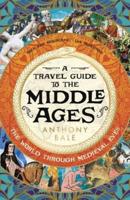Publisher's Synopsis
How successful has Britain been in the twentieth century?
This is the question Robert Skidelsky poses in this fascinating analysis of a century in which Britain lost an empire, fought two world wars, founded the welfare state and weathered economic turbulence and technological upheaval.
We are accustomed to judging nations by their success in increasing or maintaining power - by these measures Britain has failed to thrive, but what of quality of life, prosperity, political, cultural and moral values?
The British people are richer and healthier than in 1900. Despite cataclysmic events and some fraying at the edges, our society is more democratic and tolerant, and our constitution of liberty has been preserved, at a cost. Bu inequality of wealth income is much as it was before 1914, finance is scarcely less proud or industry more content, and history continues to be made by the elite.
Starting with an assessment of the material, political, cultural and moral resources Britain brought to the twentieth century, Skidelsky turns to how events and the actions of Lloyd George, Churchill, Thatcher and Blair had an impact upon them, debating the nature of success, and what the future might hold for the country.







